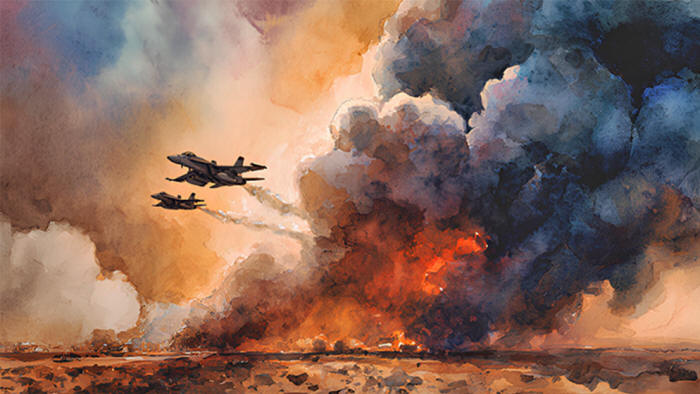|
by Timofey Bordachev Program Director of the Valdai Club June 23, 2025 from Vzglyad Website translation by RT Team June 27, 2025 from RT Website
© vz.ru
Forget the Middle East. This Region could be next to see a Major Crisis. Russia must watch the fallout of Israel's wars... especially in its backyard.
If
Iran
undergoes a radical change in its political system or descends into
internal turmoil, its territory could become a conduit for foreign
infiltration into a region long seen as within Russia's strategic
orbit.
In this context, central Asia has always been viewed as part of Russia's extended strategic space.
Threats to the region's stability are thus
perceived in Moscow not as distant disruptions, but as direct
national security concerns. One of the central foreign policy
challenges for Russia in the coming years will be determining how
far it must go to prevent such threats from materializing.
Geographically removed from the conflict-prone neighborhoods of Turkey, Syria, Iraq, and Israel, the region has enjoyed a period of relative calm.
But this insulation is now under threat...!
But the danger has rarely come from Afghan state actors. Instead, the country has served as a base for extremists targeting neighboring post-Soviet republics.
Both Russia and China have long had a vested interest in shielding the region from such spillover, largely for their own domestic reasons.
Both powers have large Muslim populations and
strong incentives to keep Islamist radicalism at bay. It is
precisely this self-interest that has formed the basis of effective
cooperation and restraint in international relations.
Israel's current posture - driven by an elite seeking to maintain power through perpetual military confrontation - is creating ripple effects far beyond its borders.
The escalation since October 2023 has triggered a direct conflict between Israel and Iran.
While many of Israel's Arab neighbors may prefer
to stay out of such a spiral, the intensification of conflict makes
neutrality increasingly untenable.
Iran is a key player in the
Eurasian balance, and a descent into chaos could turn it into a
launch pad for foreign interference aimed at Russia and
China via Central Asia...
Should Iran fracture, the security vacuum created
could expose Central Asia to manipulation from actors who view the
region not as a priority in itself, but as a lever against Moscow
and Beijing.
The region's population of under 90 million is dwarfed by the likes of Iran or Pakistan. Its global economic footprint pales in comparison to Southeast Asian nations such as Vietnam or Indonesia.
The West views it not as a partner, but as a
resource base - useful insofar as it weakens Russia and China.
For Washington, Brussels, or London,
Beyond the external threats, there are internal risks as well.
Israel's aggressive foreign policy, when broadcast globally, generates resentment among Muslim populations.
The governments of Central Asia have done much to avoid becoming pawns in global geopolitics.
The creation of the 'Central
Asian Five' - a regional platform for dialogue and
coordination - has been a major step. Russia supports this
initiative, recognizing the importance of local agency and regional
cooperation.
Overall, the region's foreign policy is marked by pragmatism.
It seeks flexibility without compromising core obligations to strategic partners such as Russia.
Russia must be realistic.
History teaches caution.
Russia remains a friend, a neighbor, and a responsible partner.
In the age of collapsing norms and rising
brute force, this sober, balanced approach is the only one
that can ensure both regional peace and Russia's own long-term
security.
|


